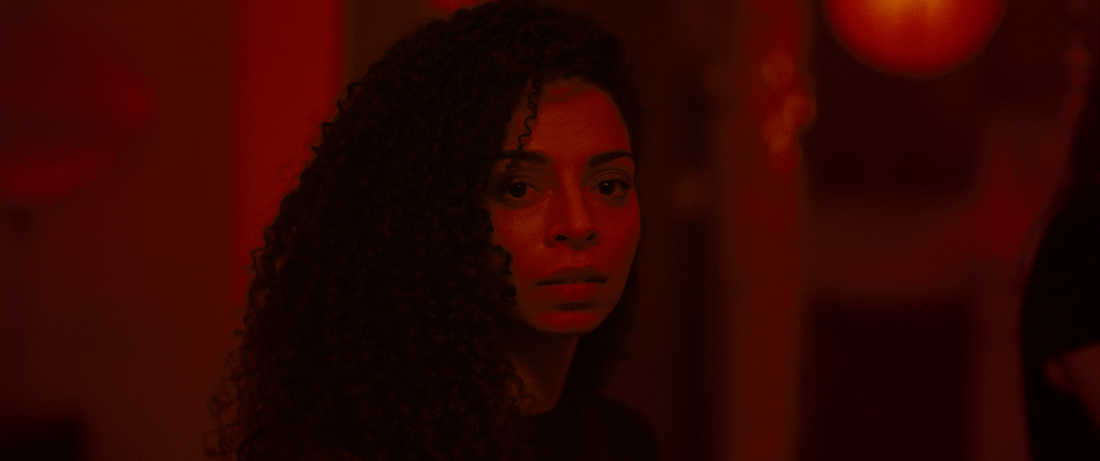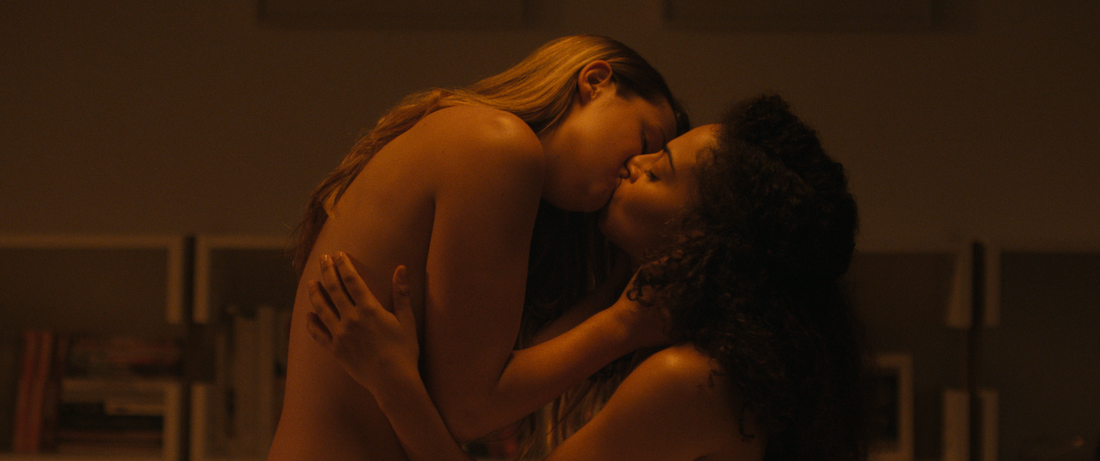|
The Breadcrumbs widget will appear here on the published site.
A Very Girl Talk InterviewGirl Talk explores the experiences of a queer femme POC. This exclusive interview with Erica Rose (the writer/director) and Chelsea Moore (the producer) will give you more insight into this outstanding short film. Girl Talk was created by Sour Peach Films, a film production company that focuses on the stories of overlooked identities and experiences. This short film is a prime example of queer femmes taking control of our narrative instead of having our stories told by cis het men. Although this film hasn’t been out for long, it’s already gaining recognition. For instance, Girl Talk has already been nominated by AGLIFF for the Iris Prize in the UK. In this interview, I spoke with Erica Rose and Chelsea Moore. Erica Rose wrote and directed this film while Chelsea Moore was the producer. Both are queer femmes who are dedicated to bringing representation and diversity to the film industry as well as rest of the world. Enjoy! 1. There's a serious lack of films that focus on queer wlw relationships. What inspired you to make Girl Talk? Erica: Before Girl Talk, I had never written anything explicitly queer, especially something that was inspired by my own experiences. I was afraid of being labeled as a queer filmmaker, which was a product of lingering internalized homophobia and shame. A couple years ago, I started writing a feature film and found myself frustrated with the outcome. I felt as if I wasn’t being honest with myself and my own experiences and it was being reflected through my work. I decided to challenge and confront myself in a way that was acutely vulnerable and personal. I knew that in order to advance myself as an artist in the way I wanted to, I had to approach topics that were unresolved. In addition, queer femme stories have been emerging in the past five years as critical arthouse successes – Blue is the Warmest Color, Carol, The Handmaiden, and Disobedience to name a few. These films were able to garner a certain amount of financing and attention due to the fact that they were directed by cis men. I enjoy all of those films for various reasons, but queer femme stories have been and are being systematically stripped away from queer femme storytellers. There’s an inherent authenticity and vibrancy that only a queer femme person can bring to a story about queer femme people. That’s lost when someone else tells the story. 2. Is any part of Girl Talk based on real life? Erica: Girl Talk is semi-autobiographical and combines my experiences with other people’s experiences from our community, as well as fiction. Girl Talk is about a time in my life where I used sex to gain agency and control over people because I was so afraid of what it meant to be truly intimate with someone. It was a lonely, dark period, but since making this film, I’ve finally begun to make peace with that part of my life. As I was writing the film, I became more and more fascinated with how our community talks to one another. There’s frank and unapologetic discussion about sex, and yet so much of our vulnerability is being masked by silence and misdirection. This is represented through Mia. She discusses sex confidently with her friends, and yet the film is about what Mia IS NOT saying to the people around her and especially herself. One important element to note is that when I cast Hannah Hodson as the lead, we made it a priority to work together in how we incorporated race into the film. Hannah and I went through Mia’s dialogue and actions so that it felt authentic and voiced by a woman of color. 3. What are your favorite things about this film?
Erica: SO much! The most important element of the film is accepting vulnerability. When Mia finally strips down all of her (crumbling) walls, she’s left with a raw, vanquished, inescapable confrontation of herself, a confrontation that will be difficult, yet beautiful and rewarding. It’s one step closer to finding true intimacy. I love the subtlety of the performances. That was a combined effort between myself and the cast members. Without the right actors, the words off the page could have felt provocative or antagonizing in some instances. One scene that doesn’t get as much attention is the scene between Mia (Hannah Hodson) and Natasha (Diane Chen) in the bathroom of the party. When Natasha realizes that Mia’s intentions with her are purely physical, there’s a quiet devastation she processes instantly. Without being petulant or humiliated, Natasha delicately says, “It’s like someone being into you isn’t enough.” For me, that’s one of the most tragic moments of the film. Here, you have someone who genuinely likes Mia for who she is, but Mia cannot recognize or appreciate that. Finally, I love that we took risks aesthetically. Off the script, Girl Talk reads as "production friendly," besides the intimate scenes. But, I never make things simple. I wanted a heightened world where we played with camera movement and color. Every shot of the film and every color choice represents Mia’s internalized conflict. Our production designer Madeline Wall and our cinematographer Daisy Zhou pulled off the look of the film expertly. Even with a tight production schedule and budget, we never compromised the style or tone of the film. Chelsea: I love the conversations that Girl Talk has opened us up to. After screenings we’ve talked with audience members, other filmmakers, and programmers about queer representation on screen, representation in front & behind the camera, what types of stories we as queers are “allowed” or given space to tell, depicting consent…. It’s been wild. 4. What was the most difficult aspect of making Girl Talk? Erica: I’m going to divide this answer into two parts – logistical and emotional. In terms of logistics, the hardest part was financing. Chelsea and I crowdfunded with Seed & Spark and got amazing support from our executive producers Alessandra Clark, Abby Pucker and Paige Grand Pré. I knew that once we got the money together, the elements would fall into place. Emotionally, the most difficult aspect was essentially coming out again with Girl Talk. First of all, it’s a misconception that you come out once. If you’re queer, and especially "heterosexual passing," you’re potentially coming out every day of your life. This film is a demonstrative exploration of my own queerness, which essentially means I am inescapably and publicly queer. I’m proud of this, but it’s definitely taken work to get to that point of acceptance. I know Chelsea had a similar experience and I’m grateful we have each other to support one another. Chelsea: What Erica said, but especially the financing. We spent months working full-time to get the money together while we were both working other full-time production jobs. 5. You had an opportunity to explore polyamory in this film, but chose not to. Why? Erica: The story is not about polyamory. It’s about one person who navigates the disparity between emotional and physical intimacy, which comes to a head when she has a sexual experience with a couple. Having group sex is not polyamory. A polyamorous person is someone who is romantically involved or has the capacity to be romantically involved with more than one person. Girl Talk would be a very different film if it explored a polyamorous narrative. It’s not an accident that in the end of the film Mia is alone. The movie is not about relationships. It’s about one person. Chelsea: Thank you for getting that it’s not a movie about polyamory! It’s so important to me that there’s a distinction. Girl Talk is not telling that story or speaking for that community. 6. Does Sour Peach Films have a message for queer women you'd like to share? Erica: Yes! I want this film, and all of our films, to cement that queer women have agency over their sexuality. Girl Talk is a deviation from the male gaze, and a reclamation of a narrative that has been taken away from us. I want queer women to feel like there are at least two people out there who will advocate and produce films for and about them with authenticity and passion! Chelsea: And to say thank you to queer womxn! This film is for femmes and possible because of them! Follow Sour Peach Films on Instagram for more updates! CommentsComments are closed.
|
|









